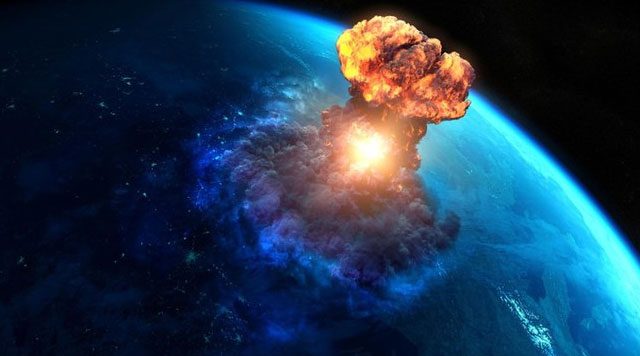12,800 years ago, an extraterrestrial “attacker” triggered a horrific explosion that destroyed the ancient village of Abu Hureyra in Syria, an event that marked a significant turning point in human history.
Following clues related to the hypothesis that a cosmic impact caused the Younger Dryas (YD), a period during which the Earth underwent a sudden and catastrophic ice age, an international team of scientists discovered a “treasure trove” at the Abu Hureyra site in Syria.
According to Science Alert, the Abu Hureyra sediment layers reveal numerous factors, including plant types from the final warm days of Earth and the onset of freezing conditions.

A catastrophic comet explosion temporarily changed Earth and altered humanity forever – (Graphic image from SCIENCE ALERT).
The data is particularly valuable as it connects to construction architectures and other remnants that demonstrate how ancient humans survived through this abrupt climate disaster.
Moreover, according to archaeologist Andrew Moore from the Rochester Institute of Technology (UK), they also found shocked quartz grains.
These are referred to as “shocked quartz,” clear evidence of the impact from a violent explosion that caused a firestorm.
During that era, it could only represent a cosmic impact, which subsequent research has identified as caused by a comet exploding at a relatively low position in the Earth’s sky.
The accompanying materials—such as tiny diamonds, a special type of crystal, and extremely small silica spheres in the sediment—could only form through two means: either an atomic bomb explosion or a meteorite explosion. Certainly, human technology 13,000 years ago could not produce these.
It was an extremely bad day for the ancient people of Abu Hureyra, as the entire village likely collapsed. However, their efforts to overcome the subsequent harsh climate change led to a permanent transformation in humanity.
After the extraterrestrial impact, the people of Abu Hureyra learned agriculture and livestock breeding, another clear revelation from the sediments.
The primitive hunter-gatherer lifestyle officially ended here and possibly in many other parts of the world, as the effects of the YD spread globally. This brought about an unexpected leap in civilization for humanity.


















































